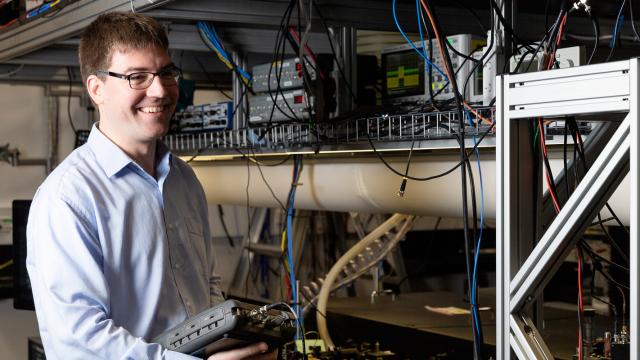Quantum computing is still a baby, really. We are still working out exactly what problems quantum computers will be able to solve (although we know they’ll be able to do it fast, obviously).
Quantum chemistry is tipped to benefit hugely. Because right now, anything but the most-simple chemical processes are beyond the capacity of the biggest and fastest supercomputers.
With Quantum computing, however, our understanding of the complicated bonds and reactions of molecules using quantum mechanics will got through the roof. Scientists say they will be able to unlock lower-energy pathways for chemical reactions, allowing the design of new catalysts.
We’re talking huge implications for industries, like fertiliser production.
Now, an international group of researchers (led by an Australian Scientist, of course) have achieved the world’s first multi-qubit demonstration of a quantum chemistry calculation performed on a system of trapped ions, one of the leading hardware platforms in the race to develop a universal quantum computer.
The research, headed up by University of Sydney physicist Dr Cornelius Hempel, explores a promising pathway for developing effective ways to model chemical bonds and reactions using quantum computers.
“Even the largest supercomputers are struggling to model accurately anything but the most basic chemistry. Quantum computers simulating nature, however, unlock a whole new way of understanding matter. They will provide us with a new tool to solve problems in materials science, medicine and industrial chemistry using simulations,” Dr Hempel said.
Other possible uses include the development of organic solar cells and better batteries through improved materials and using new insights to design personalised medicines.
Working with colleagues at the Institute for Quantum Optics and Quantum Information in Innsbruck, Austria, Dr Hempel used just four qubits on a 20-qubit device to run algorithms to simulate the energy bonds of molecular hydrogen and lithium hydride.
These relatively simple molecules are chosen since they are well understood and can be simulated using classical computers. This allows scientists to check the results provided by the quantum computers under development.
Instead of aiming for the most accurate or largest simulation to date, Dr Hempel’s work focused on what can go wrong in a promising quantum-classical hybrid algorithm, known as variational quantum eigensolver or “VQE”.
By looking at different ways to encode the chemistry problem, the researchers are after ways to suppress errors that arise in today’s imperfect quantum computers and stand in the way of near-term usefulness of those machines.
Error suppression is at the core of research pursued in the University of Sydney’s Quantum Control Laboratory, led by Professor Michael Biercuk, who recently launched Australia’s first private quantum start-up, Q-CTRL. Dr Hempel, who did the experiments while at the University of Innsbruck, now hopes to leverage Sydney’s expertise to improve what can be accomplished with these kinds of simulations.
“Quantum chemistry is an example where the advantages of a quantum computer will very soon become apparent in practical applications,” Innsbruck Professor Rainer Blatt, a pioneer in quantum computing, said.
Head of the University of Sydney Nano Institute’s quantum science domain, Dr Ivan Kassal, calls the work “a remarkable implementation of one of the most promising approaches to quantum chemistry, proving its mettle on a real quantum-information processor.”
He said that Dr Hempel’s decision to move to the University of Sydney in 2016 was an excellent addition to the strong quantum team on campus.
“Theoretical chemistry and materials science are strengths at this university and they will be augmented by these latest techniques in quantum computation.”
